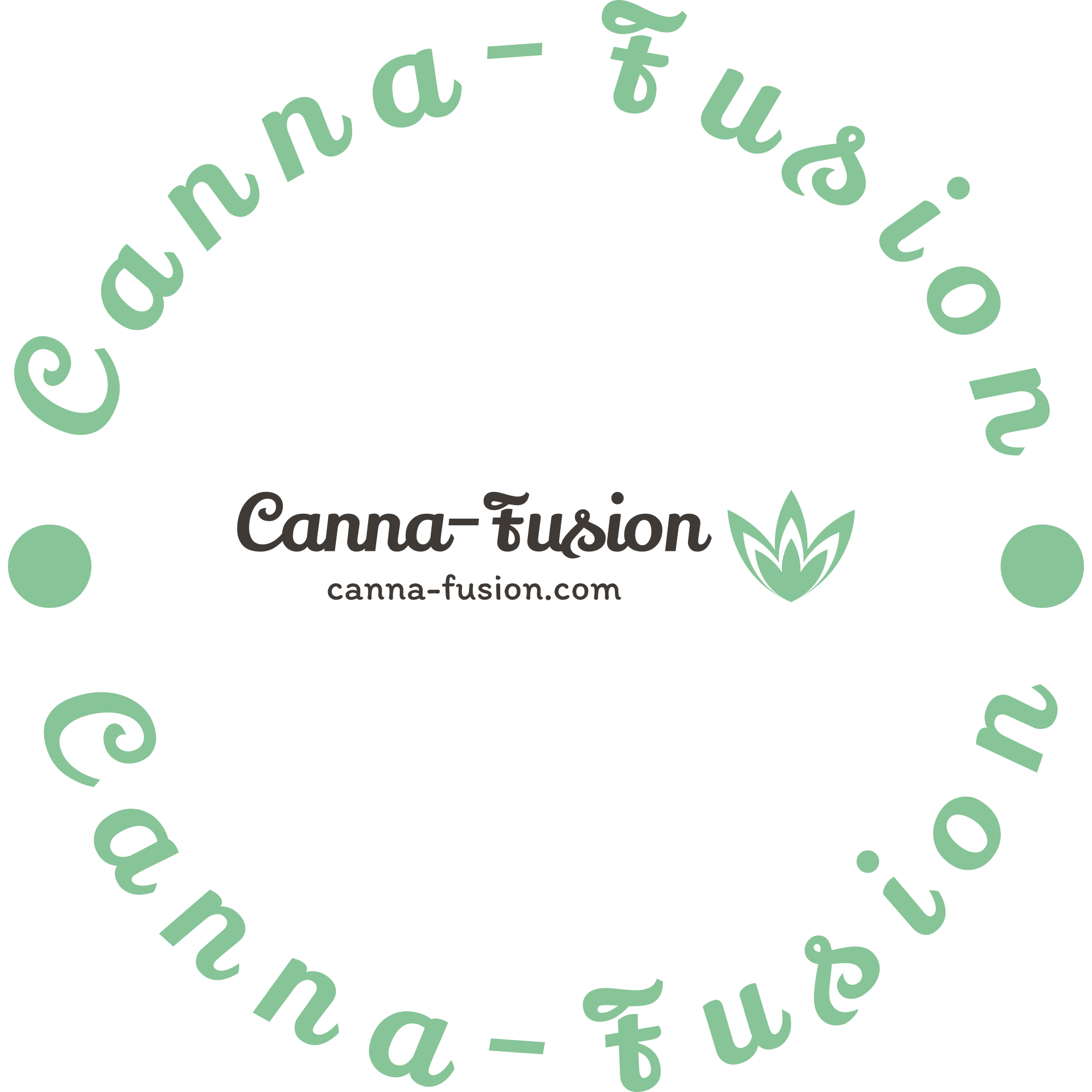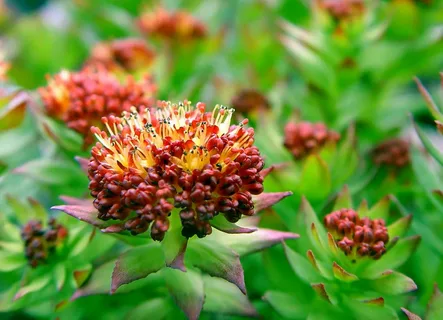Rhodiola Rosea, often referred to as the “golden root” or “arctic root,” is a powerful adaptogenic herb renowned for its potential nootropic benefits. Nootropics, also known as “smart drugs” or cognitive enhancers, are substances that may improve cognitive function, particularly executive functions, memory, creativity, or motivation. Rhodiola Rosea has been used traditionally for centuries, particularly in cold, mountainous regions of Europe and Asia, to combat fatigue, enhance physical performance, and improve resilience to stress. In this guide, we will delve into the various benefits of Rhodiola Rosea nootropics, explore the science behind their effectiveness, and answer common questions about their use.
Understanding Rhodiola Rosea
What is Rhodiola Rosea?
Rhodiola Rosea is a perennial flowering plant in the Crassulaceae family. It grows in wild Arctic regions of Europe, Asia, and North America. The plant has a history of use in traditional medicine, where its roots are used for their medicinal properties. Rhodiola Rosea is known for its adaptogenic properties, meaning it helps the body adapt to stress and exert a normalizing effect upon bodily processes.
The Active Compounds
The primary active compounds in Rhodiola Rosea that contribute to its adaptogenic and nootropic effects are rosavins and salidrosides. These compounds are believed to be responsible for the herb’s ability to reduce fatigue, enhance physical performance, and improve cognitive function. Rosavins include rosavin, rosin, and rosarin, while salidroside is a glucoside of tyrosol.
Traditional Uses
Traditionally, Rhodiola Rosea has been used to combat fatigue, increase endurance, and enhance resilience to high-altitude sickness. It has also been employed to improve work performance, reduce stress, and promote longevity. Its use dates back to ancient civilizations, including the Vikings, who relied on Rhodiola Rosea to enhance their strength and stamina.
The Nootropic Benefits of Rhodiola Rosea
Enhancing Cognitive Function
One of the most well-known benefits of Rhodiola Rosea is its ability to enhance cognitive function. Studies have shown that Rhodiola Rosea can improve memory, concentration, and overall mental performance. This is particularly beneficial for individuals experiencing cognitive decline or those who need to perform mentally demanding tasks.
Reducing Fatigue and Enhancing Energy
Rhodiola Rosea is highly regarded for its ability to combat fatigue and enhance energy levels. It helps the body adapt to physical and mental stressors, reducing feelings of exhaustion and improving overall stamina. This makes it an excellent supplement for athletes, students, and professionals who need sustained energy and focus.
Alleviating Stress and Anxiety
As an adaptogen, Rhodiola Rosea helps the body manage stress more effectively. It has been shown to reduce cortisol levels, the body’s primary stress hormone, and improve the body’s response to stress. This can lead to reduced feelings of anxiety, improved mood, and enhanced overall well-being.
Improving Physical Performance
Rhodiola Rosea’s ability to enhance physical performance is well-documented. It increases endurance, reduces recovery time after intense exercise, and helps maintain energy levels during prolonged physical activity. This makes it a popular supplement among athletes and fitness enthusiasts.
Supporting Mental Health
In addition to its cognitive and physical benefits, Rhodiola Rosea may also support mental health. Some studies suggest that it can help alleviate symptoms of depression by balancing neurotransmitters in the brain, such as serotonin and dopamine. This can lead to improved mood and a greater sense of well-being.
The Science Behind Rhodiola Rosea
Mechanisms of Action
The mechanisms through which Rhodiola Rosea exerts its effects are not fully understood, but several pathways have been proposed. It is believed to modulate the release of stress hormones and improve the balance of neurotransmitters. Rhodiola Rosea may also enhance mitochondrial function, which is crucial for energy production and overall cellular health.
Clinical Studies
Numerous clinical studies have investigated the effects of Rhodiola Rosea on cognitive function, fatigue, stress, and physical performance. For instance, a study published in “Phytomedicine” found that Rhodiola Rosea significantly reduced symptoms of fatigue and improved mental performance in individuals with stress-related fatigue. Another study in “The Journal of Alternative and Complementary Medicine” demonstrated that Rhodiola Rosea improved mood and alleviated symptoms of depression.
Dosage and Safety
The optimal dosage of Rhodiola Rosea can vary depending on the specific extract and the intended use. However, common dosages range from 200 to 600 mg per day. Rhodiola Rosea is generally considered safe when taken at recommended dosages, with few reported side effects. However, it is always advisable to consult with a healthcare provider before starting any new supplement regimen.
Incorporating Rhodiola Rosea into Your Routine
Choosing the Right Supplement
When selecting a Rhodiola Rosea supplement, it is important to choose a high-quality product that contains standardized extracts of rosavins and salidrosides. Look for supplements that are third-party tested for purity and potency to ensure you are getting a safe and effective product.
How to Take Rhodiola Rosea
Rhodiola Rosea supplements are typically available in capsule or tablet form. They should be taken with a meal to improve absorption and reduce the risk of gastrointestinal discomfort. It is best to start with a lower dose and gradually increase it to assess your tolerance and response to the supplement.
Combining with Other Nootropics
Rhodiola Rosea can be combined with other nootropic supplements to enhance its effects. For example, it may be paired with other adaptogens like Ashwagandha or cognitive enhancers like Bacopa Monnieri. However, it is important to consult with a healthcare provider before combining supplements to ensure safety and efficacy.
FAQs About Rhodiola Rosea Nootropics
What are the main benefits of Rhodiola Rosea nootropics?
Rhodiola Rosea nootropics are known for their ability to enhance cognitive function, reduce fatigue, alleviate stress and anxiety, improve physical performance, and support mental health. These benefits make it a versatile supplement for individuals looking to boost their overall well-being.
How long does it take to feel the effects of Rhodiola Rosea?
The effects of Rhodiola Rosea can vary depending on the individual and the dosage. Some people may start to notice improvements in energy and mood within a few days, while others may take a few weeks to experience the full benefits. Consistent use is key to achieving the best results.
Are there any side effects associated with Rhodiola Rosea?
Rhodiola Rosea is generally well-tolerated, with few reported side effects. However, some individuals may experience mild gastrointestinal discomfort, dizziness, or headaches. It is important to start with a lower dose and gradually increase it to minimize the risk of side effects.
Can Rhodiola Rosea be taken long-term?
Yes, Rhodiola Rosea can be taken long-term, especially when used at recommended dosages. Its adaptogenic properties make it a suitable supplement for ongoing support of cognitive function, energy levels, and stress management. However, it is always advisable to consult with a healthcare provider for personalized guidance.
Is Rhodiola Rosea safe for everyone?
While Rhodiola Rosea is generally considered safe for most people, it may not be suitable for everyone. Individuals with certain medical conditions, such as bipolar disorder or autoimmune diseases, should consult with a healthcare provider before using Rhodiola Rosea. Pregnant and breastfeeding women should also seek medical advice before starting the supplement.
How does Rhodiola Rosea compare to other nootropics?
Rhodiola Rosea is unique among nootropics due to its adaptogenic properties, which help the body adapt to stress and maintain balance. While other nootropics may focus primarily on cognitive enhancement, Rhodiola Rosea offers a holistic approach by supporting both mental and physical well-being.
Can Rhodiola Rosea help with weight loss?
While Rhodiola Rosea is not specifically a weight loss supplement, its ability to reduce fatigue and enhance physical performance may indirectly support weight loss efforts. By improving energy levels and endurance, it can help individuals stay active and maintain a regular exercise routine.
What is the best time of day to take Rhodiola Rosea?
Rhodiola Rosea can be taken at any time of day, but it is often recommended to take it in the morning or early afternoon. Taking it earlier in the day can help prevent any potential interference with sleep, as it may have a stimulating effect for some individuals.
How should Rhodiola Rosea be stored?
Rhodiola Rosea supplements should be stored in a cool, dry place away from direct sunlight and moisture. Keeping the supplement in its original container with a tightly sealed lid will help maintain its potency and shelf life.
Can Rhodiola Rosea improve athletic performance?
Yes, Rhodiola Rosea has been shown to improve athletic performance by increasing endurance, reducing recovery time, and maintaining energy levels during prolonged physical activity. Its adaptogenic properties make it a popular choice among athletes looking to enhance their performance naturally.
Conclusion
Rhodiola Rosea is a remarkable adaptogenic herb with a wide range of nootropic benefits. From enhancing cognitive function and reducing fatigue to alleviating stress and improving physical performance, this powerful plant offers a holistic approach to supporting overall well-being. By understanding its benefits, mechanisms of action, and proper usage, individuals can effectively incorporate Rhodiola Rosea into their routines to reap its numerous advantages. Whether you’re a student, professional, athlete, or simply someone looking to improve your mental and physical health, Rhodiola Rosea nootropics may be a valuable addition to your wellness regimen.
- Downturned Smile Treatment Near Tandridge, Surrey - May 8, 2025
- Dermal Fillers Near Chipstead, Surrey - May 6, 2025
- Forehead Frown Lines Treatment Near Stoke D’Abernon, Surrey - May 6, 2025

